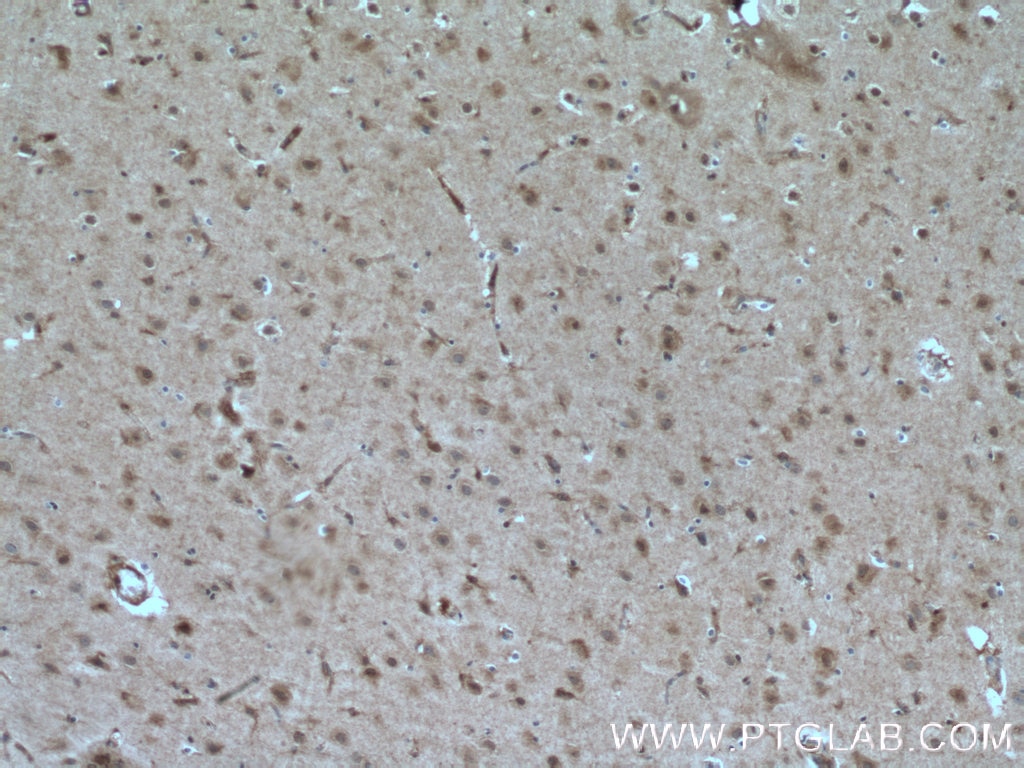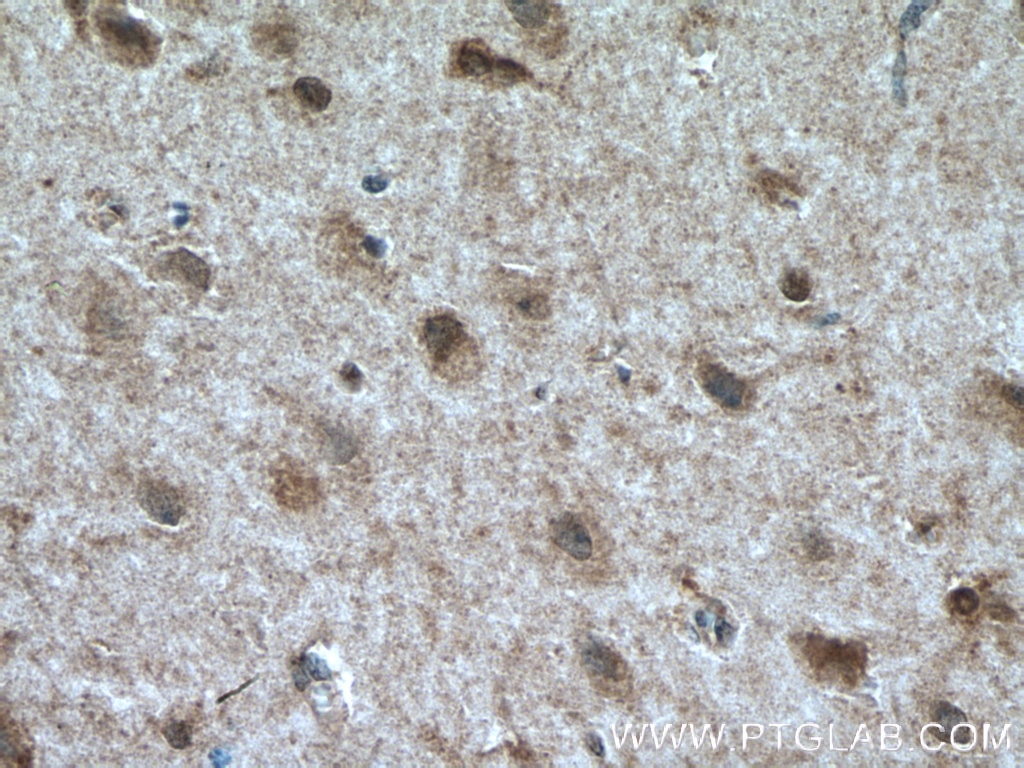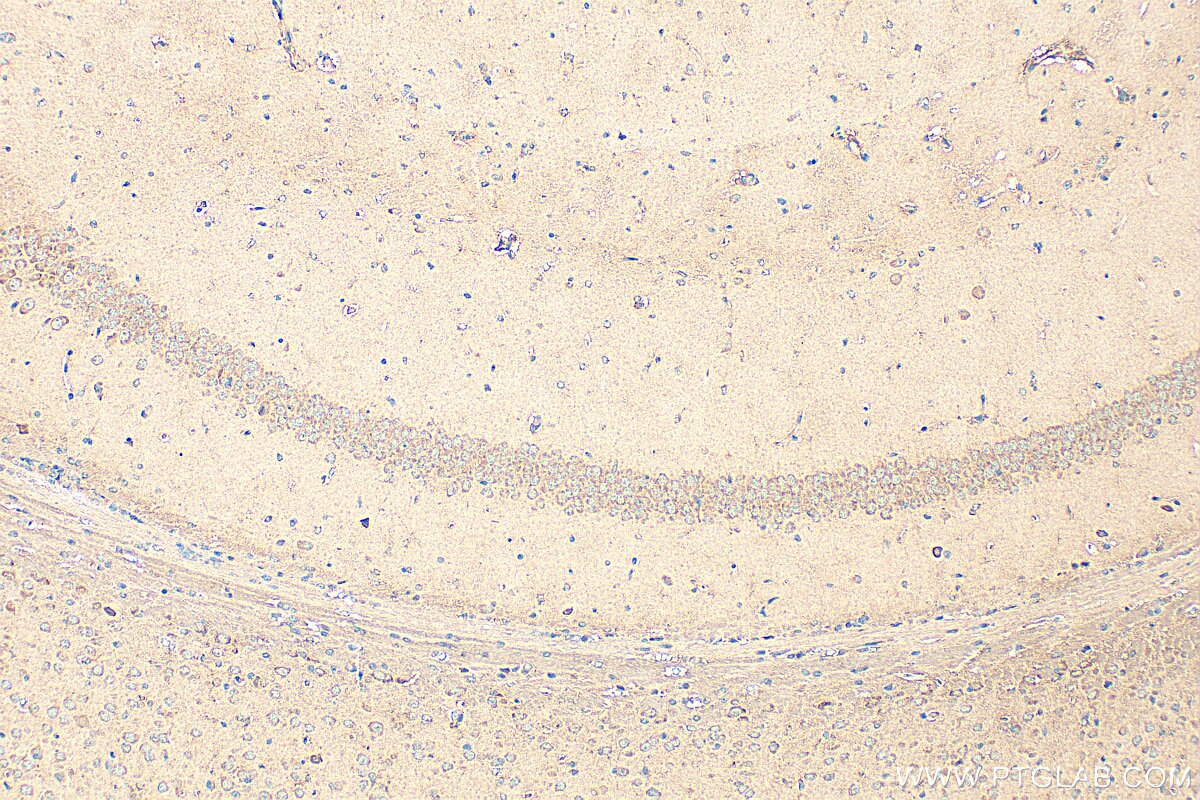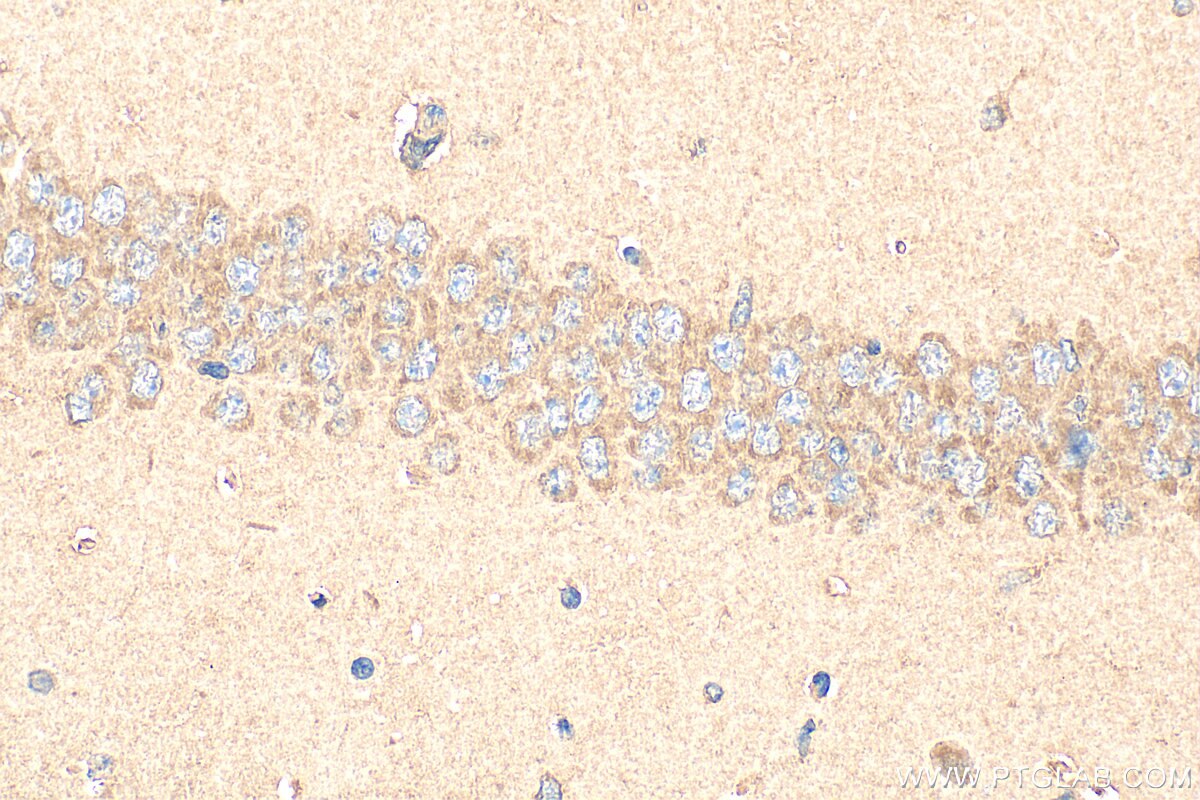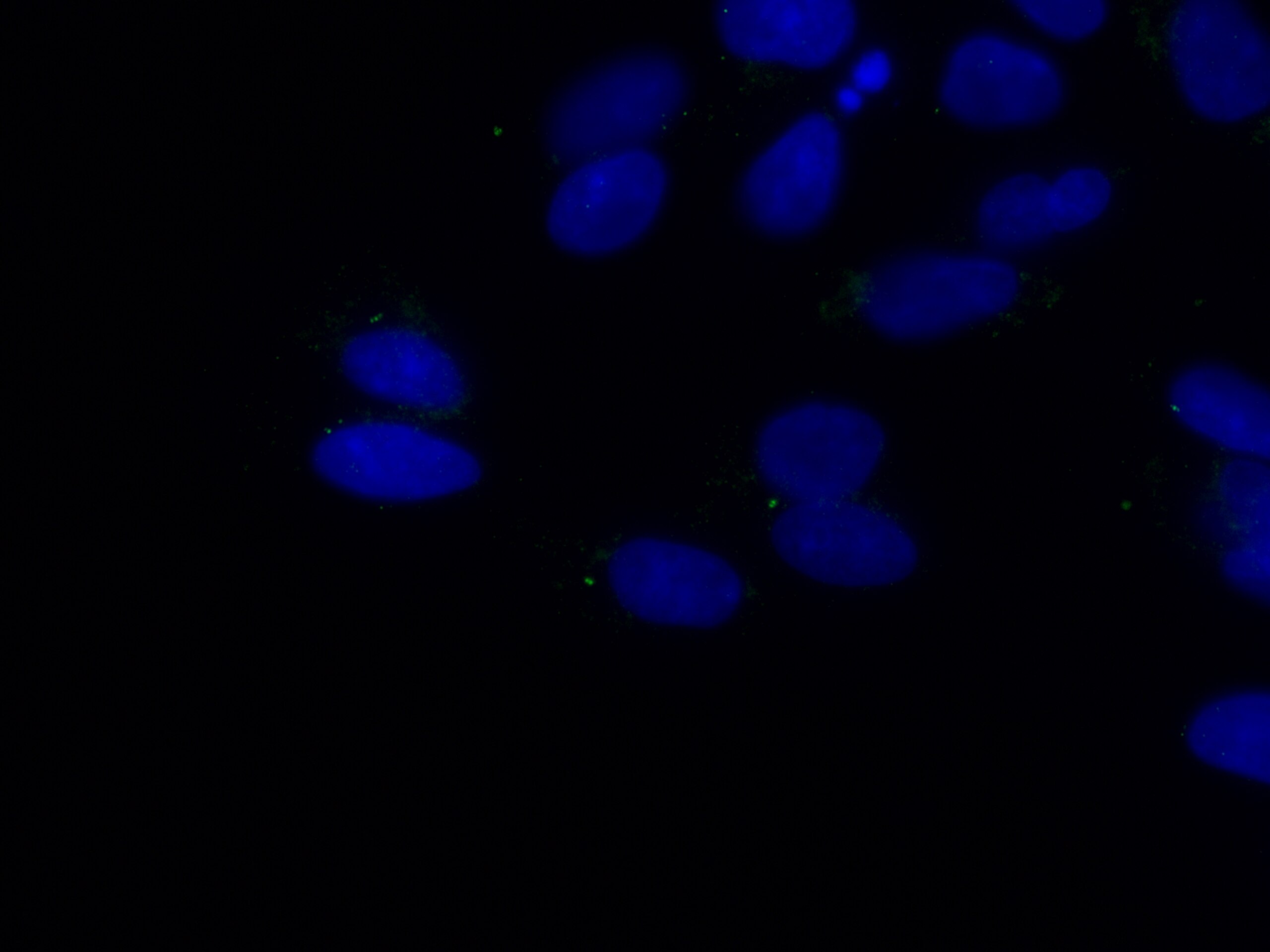Tested Applications
| Positive IHC detected in | human brain tissue, mouse brain tissue Note: suggested antigen retrieval with TE buffer pH 9.0; (*) Alternatively, antigen retrieval may be performed with citrate buffer pH 6.0 |
| Positive IF/ICC detected in | MDCK cells |
Recommended dilution
| Application | Dilution |
|---|---|
| Immunohistochemistry (IHC) | IHC : 1:50-1:500 |
| Immunofluorescence (IF)/ICC | IF/ICC : 1:1000-1:4000 |
| It is recommended that this reagent should be titrated in each testing system to obtain optimal results. | |
| Sample-dependent, Check data in validation data gallery. | |
Published Applications
| KD/KO | See 3 publications below |
| WB | See 4 publications below |
| IF | See 8 publications below |
| CoIP | See 2 publications below |
Product Information
24421-1-AP targets TALPID3 in WB, IHC, IF/ICC, CoIP, ELISA applications and shows reactivity with human, mouse, canine samples.
| Tested Reactivity | human, mouse, canine |
| Cited Reactivity | human, mouse, caenorhabditis elegans |
| Host / Isotype | Rabbit / IgG |
| Class | Polyclonal |
| Type | Antibody |
| Immunogen |
CatNo: Ag19813 Product name: Recombinant human KIAA0586 protein Source: e coli.-derived, PET28a Tag: 6*His Domain: 1201-1533 aa of BC066647 Sequence: SQMPGSDSSTLESTLSVTVTETETLDKPISEGEILFSCGQKLAPKILEDIGLYLTNLNDSLSSTLHDAVEMEDDPPSEGQVIRMSHKKFHADAILSFAKQNQESAVSQQAVYHSEDLENSVGELSEGQRPQLTAAAENILMGHSLYMQPPVTNTQSLDQQCDPKPLSRQFDTVSGSIYEDSCASHGPMSLGELELEPNSKLVLPTTLLTAQENDVNLPVAAEDFSQYQLKQNQDVKQVEHKPSQSYLRVRNKSDIAPSQQQVSPGDMDRTQIELNPYLTCVFSGGKAVPLSASQMPPAKMSVMLPSVNLEDCSQSLSLSTMQEDMESSGADTF Predict reactive species |
| Full Name | KIAA0586 |
| Calculated Molecular Weight | 1533 aa, 169 kDa |
| GenBank Accession Number | BC066647 |
| Gene Symbol | TALPID3 |
| Gene ID (NCBI) | 9786 |
| RRID | AB_2879539 |
| Conjugate | Unconjugated |
| Form | Liquid |
| Purification Method | Antigen affinity purification |
| UNIPROT ID | Q9BVV6 |
| Storage Buffer | PBS with 0.02% sodium azide and 50% glycerol, pH 7.3. |
| Storage Conditions | Store at -20°C. Stable for one year after shipment. Aliquoting is unnecessary for -20oC storage. 20ul sizes contain 0.1% BSA. |
Background Information
KIAA0586 also named as Talpid3 is a 1472 amino-acid protein, which belongs to Talpid3 family. Talpid3 is a gene essential for vertebrate development. Studies in chicken, mouse, zebrafish and human have shown that TALPID3 is a centrosomal protein, mutants null for TALPID3 fail to produce cilia, resulting in far reaching signalling defects such as polydactyly, dorsalised neural tube, craniofacial and vascular defects often due to abnormalities in Hedgehog signal transduction. Talpid3 is absolutely required for the function of both Gli repressor and activator in the intracellular Hedgehog pathway and ciliogenesis. TALPID3 may be identified as a subcellular maker of centrosome and needed to further studied.
Protocols
| Product Specific Protocols | |
|---|---|
| IF protocol for TALPID3 antibody 24421-1-AP | Download protocol |
| IHC protocol for TALPID3 antibody 24421-1-AP | Download protocol |
| Standard Protocols | |
|---|---|
| Click here to view our Standard Protocols |
Publications
| Species | Application | Title |
|---|---|---|
Nat Commun TALPID3 and ANKRD26 selectively orchestrate FBF1 localization and cilia gating.
| ||
Elife TALPID3 controls centrosome and cell polarity and the human ortholog KIAA0586 is mutated in Joubert syndrome (JBTS23). | ||
EMBO Rep Aurora Kinase A proximity map reveals centriolar satellites as regulators of its ciliary function. |
Reviews
The reviews below have been submitted by verified Proteintech customers who received an incentive for providing their feedback.
FH Elisa (Verified Customer) (12-14-2022) | RPE1 cells were fixed in cold methanol for 10' at -20C. Cells were then rehydrated with PBS for 5'. Membrane permeabilization was then performed with 0.1% Triton + 0.1% Tween +0.01%SDS in PBS for 5'. Cells were finally incubated with blocking buffer (5% BSA+ 0.1% Tween in PBS) for 30' at RT. Primary antibody was diluted in blocking buffer 1:200 and incubated for 1h at room temperature. Alexa-488-Anti-rabbit was used as secondary antibody for Talpid3 (1:600 dilution) (1h at room temperature). In pink (Talpid3); in green (GT335, decorating centrioles) and in blue (Hoechst, DNA).
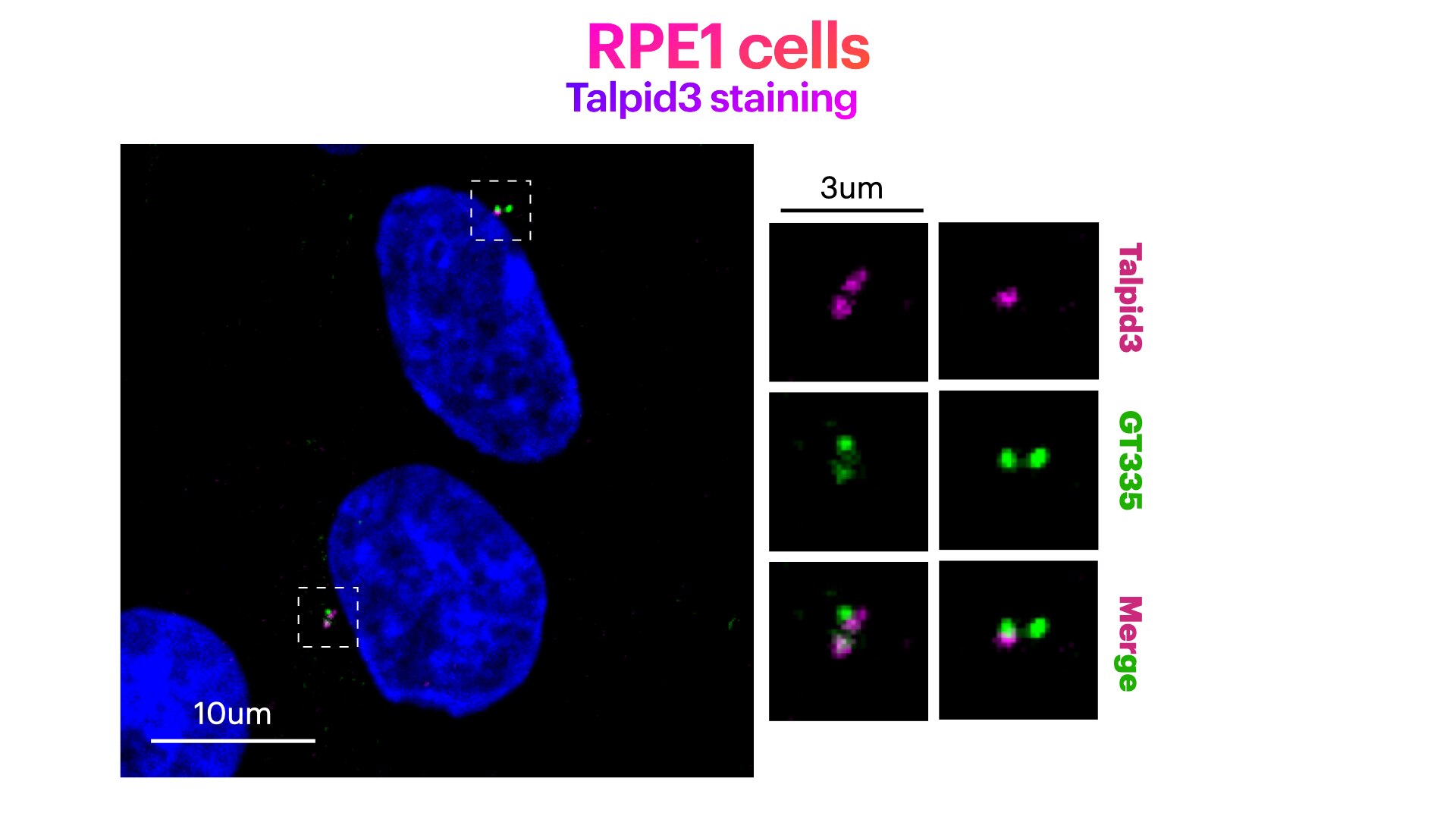 |

